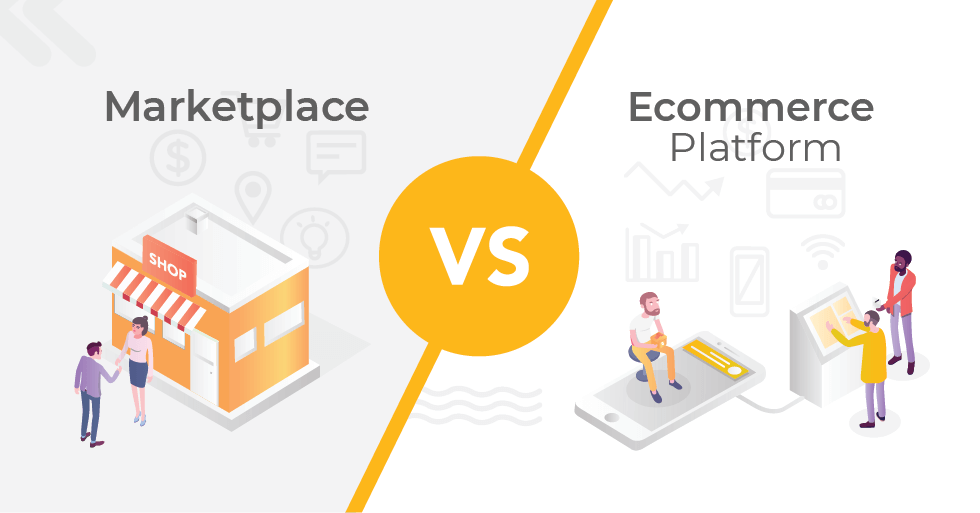Each year, Big Data in eCommerce becomes more popular. Big data analytics and other technologies are utilized in this kind of commerce to enhance client interaction, tailor the shopping experience, and boost revenue. It has numerous advantages, but there are also a few difficulties that must be solved. In this article, we’ll discuss Big Data in eCommerce in more detail, go over some of its benefits and drawbacks, and offer predictions about how it will change in the future. Are you ready to start right now?
What is Big Data in eCommerce?
Big data is a huge collection of structured, unstructured, and semi-structured data that may be used to extract information. Numerous sectors, including eCommerce, healthcare, energy, finance, manufacturing, transportation, and even governments, use it. In order to enhance customer engagement, tailor the shopping experience, and boost revenue, big data in eCommerce uses big data and analytics. Customers are engaged by Big Data in eCommerce in two primary ways: by receiving tailored recommendations and having more access to product details.
Advantages of Big Data in eCommerce
We highlight some advantages of using Big Data in the eCommerce business, in case you’re still unclear as to why pay so much attention to it at all. Big data has had enough opportunity to influence the eCommerce business, bringing with it some game-changing capabilities and prospects. especially the ones as follows.
Enhance shopping experience
Predictive analytics techniques require big data capabilities. Because it makes it easier to identify and forecast user wants, evaluate user behavior trends, and enhance the user experience accordingly. Additionally, it effectively impacts the entire impression of the purchasing experience you offer. Thus, the technology enables quick, extensive analysis of user-generated data collected from user behaviors in one’s online marketplace or store.
For that reason, eCommerce companies can create goods and services that perfectly suit their target audience. For instance, Amazon uses sophisticated big data-driven delivery routing algorithms to enhance user experience while also optimizing the company’s logistical operations.
Shopping personalization
With the use of big data, you may implement big personalization, a set of procedures designed to specifically customize advertising campaigns to the demands of the TA via carefully monitoring and acquiring commercial user information
This is an effective way of targeting, segmenting, and personalizing user experiences. To increase conversion rates, you may divide users into incredibly small groups using in-depth audience monitoring
Higher payments security
Payment processing engines are better able to identify fraudulent activity inside flows of online payments because of big data’s primary capacity to examine large datasets. Cybercriminals are also limited in their ability to do harmful operations. This brings a safer shopping environment. For instance, PayPal uses big data-driven algorithms to take advantage of machine learning opportunities and make its system adept at recognizing frauds among millions of transactions.
Real-time service adjustments
Big data helps you to dynamically adapt to the relevant business situation through the in-depth study of customer satisfaction levels, identification of difficulties linked to order processing and delivery, and other possibilities at defining points of client happiness and perception. Additionally, if you know how to effectively satisfy your clients, you can keep them around and increase sales and profits as a result.
Boost SEO
By providing retailers with insightful knowledge about what their clients are looking for and enabling them to optimize product pages so that these goods show up at the top of search results, big data analytics may benefit retailers’ SEO efforts. This makes sure that the product page is updated, accurate, and relevant. Big Data may also be utilized to improve conversion rate optimization (CRO).
Smart chatbots for customer support
The link between automated AI-powered customer service chatbots and big data use cases in eCommerce is among the most significant. Smart bots may assist you in gathering data based on the preset criteria and immediately sorting it in accordance, thereby saving you time and effort.
Main trends of Big Data in eCommerce
Data Analytics
More data will need to be handled and analyzed more quickly and thoroughly thanks to the Internet of Things. Information processing will be done at an amazingly high standard when integrated with cutting-edge tech concepts like artificial intelligence, the Internet of Things, big data, etc. As a result, it assists both big and small businesses in all sectors to improve internal procedures and significantly reduce data management expenses.
Automation
All kinds of sectors are currently focusing on workflow, interactions, and other forms of automation where manual, routine, and more expensive operations may be substituted with alternative automated techniques. This is particularly relevant to 24/7 customer support, chatbots, and content translation for customers’ convenience.
It will provide significant cost reductions without affecting service quality. With chatbots, autonomous data visualization and the translation should assist companies all around the world in achieving the next level of customer experience.
>>> Read also: Top 10 key digital transformation trends for 2022
Personalization of Experience
Many people got used to the fact that several apps, websites, and other items they use on a regular basis seem to already know what they need or want to buy.
Future modern eCommerce service providers should be able to dynamically adapt to the requirements and preferences of each individual customer. This should encourage potential customers to progress further down the sales funnel and have a positive impact on conversion rates for suppliers.
Reinforced User Data Protection
The need for ensured personal and company data security will only increase because more potential clients are encouraged to make transactions online. As a result, customers will be more likely to use their personal and business data online.
What you should do to begin utilizing big data in your business right now?
# Perform A/B testing by using Big Data Analytics
A/B testing is a popular testing method for many businesses. This testing brings lots of advantages from big data analytics. Because it allows you to leverage the Big Data at your disposal to collect precise results for A/B testing. Based on these results, you may make adjustments that will help your business succeed.
# Integrate Big Data into the current business intelligence tools
When using Big Data analytics, you don’t necessarily need to implement new Big Data technologies. In order to meet your needs as well as achieve goals at any time, it is often possible to integrate Big Data analytics into already-existing business intelligence tools. Therefore, while you are free to engage in any component of big data analytics, you are not obligated to do so.
# Predictive modeling and scoring with big data analytics
Big data may also be used to enhance scoring and predictive modeling. Big data gives you the power to produce more precise results for these processes and deliver them in a manner that decision-makers can comprehend. Long-term advantages include better preparing your business for a range of market conditions, and client bases,…..
# Analyze Big Data artifacts and structured data
Big Data analytics may help you better understand your business’s requirements and objectives by allowing you to obtain broad intelligence about them. As a result, you can determine what you need to do now and in the future to get better. When utilized correctly, big data analytics may offer actionable insight that helps you swiftly identify issues and find solutions.
# Make better business decisions by using Big Data Analytics
Making use of big data analytics may assist businesses in figuring out how to offer customers the greatest possible experience and engage with them more personally. When handled appropriately, big data provides you unprecedented access to information about customer behavior. This is advantageous to both you and your clients.
The top successful eCommerce Use Cases
eBay

This well-known online marketplace, which serves over 140 million active clients through various channels, must deal with a significant client data turnover due to the scale and scope of its operations. These 250 terabytes of data are written and read roughly 5–6 million times every day. This is the reason why the business jumped at the chance to implement the technology for rapid, large data processing. hose figures show how much big data aids the business in dealing with market pressure.
Additionally, eBay leverages in-depth data analytics to gain a comprehensive understanding of user behavior, powers the ShopBot solution with big data capabilities for better-personalized shopping experiences, and incorporates AI for intelligent suggestions and image search.
Amazon

Amazon is a significant use case for big data in eCommerce. Furthermore, it is consistently included in lists of the best performing online retailers for a good reason. This business knows which technological concepts to highlight in order to efficiently grow and keep all current operations functioning properly. Additionally, it excels at using big data for eCommerce. As a result, the marketplace incorporates complex data science ideas into the system’s foundation for making product recommendations. Smart analytics are used to track the main requirements and preferences of the TA while analyzing the purchasing behaviors of customers.
Additionally, predictive analysis is used across various social media platforms to better understand and forecast the purchase behaviors of clients. In addition, the company’s upcoming drone delivery system is also run by big data and associated tech concepts.
Walmart

Before Walmart created and added a real-time social media search and analysis tool in 2011 to obtain comprehensive user information. To accomplish well-structured assortment segmentation, delivery route optimization, supply chain management, inventory management, and tracking, and other critical workflow elements, the business employs a variety of data science methodologies.
Etsy

This platform collaborates with almost 800,000 merchants that provide goods and services to more than 40 million monthly users. Additionally, it must deliver the appropriate technical assistance and user experience for both parties to the agreement. Here, big data serves as the main support. The business benefits from combining big data processing techniques with occasional regular buttons because of the enormous marketing turnover
Alibaba

The platform’s principal goal is to provide a ground for contactless transactions between sellers/service providers and buyers/clients. Therefore, the technology ultimately enables the platform to fulfill this goal. Here, big data principles aid in managing all interactions, enhancing the security of online transactions, and securely storing all relevant data. As a result, it is good for Alibaba to maintain operational expenses and avoid significant risks.
Conclusion
Big data in eCommerce is surely one of the main forces behind the development of modern eCommerce. Because it offers capabilities that improve performance rates in businesses of all sizes, with a variety of workflows and purposes. Our research suggests that the use of Big data in eCommerce will increase much further in 2022. Get in touch with us right now if you need assistance implementing big data into your business plan or want to know more about what we recently found. Magesolution is always ready to support you at any time
>>> Read further:
How to apply Digital Transformation to your eCommerce businesses effectively
10+ best B2B wholesale platforms to grow your business.
Top best B2B eCommerce platform to scale your B2B business rapidly



